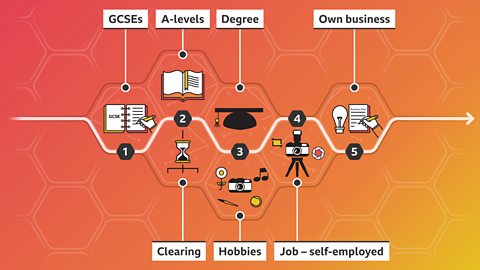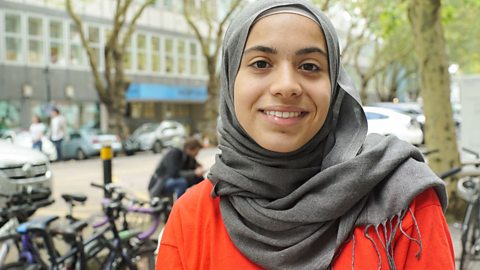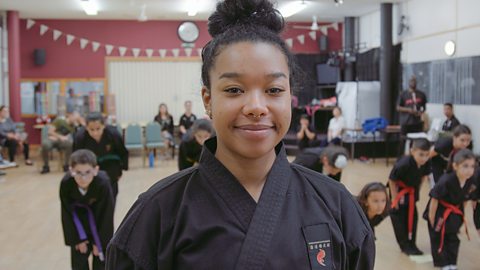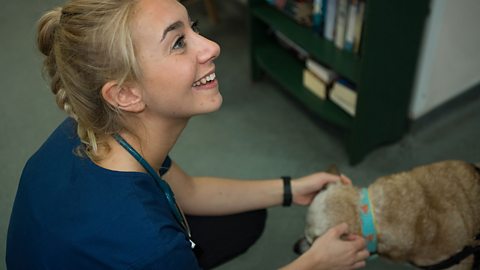Meet Corinne, 24, to find out more about life as a photographer. Part of our Bitesize world of work series.
Corinne:
I'm Corinne, I'm 24 and I'm a music photographer. I taught myself photography from scratch and took a very indirect path to my career. I really wanted to do GCSE photography, but I was told by my art teacher that I wasn't good enough which was horrible to hear.
I did Chemistry, Biology, Maths and Geography at A-level and I really didn't do very well. I didn't get into my first choice university. It felt like the end of the world, but going through clearing and ending up at the university I did probably was the best thing that ever happened to me. I started going to events and meeting people and discovered that photography was something I could really make a living out of. So when I finished uni, I went straight into being a self-employed photographer, and never looked back.
I work for magazines, for bands, going to gigs. I also make sure my studio is open for clients to hire and I shoot in there myself for drag queens and bands and front covers, features etc. Even when you're not at gigs, you're at home editing photos, sending emails to get new clients, the grind never stops.
Speaking at BBC Introducing Live, it's really great seeing the room so filled with women. When I was younger, I didn't really see any female music photographers and now that I have the experience and the skills that I have, I really enjoy passing them on to aspiring photographers.
The best thing about my job is being friends and colleagues with the bands that I used to queue up in the freezing cold without a jacket to see. To work for the magazines that I used to buy and see kids now with my photos on their walls as posters is just such a great feeling.
I get to be creative and travel with my job. It’s a win win!
- Corrine had a tough experience when finishing school and didn't get the grades she needed to go to university
- She went through Clearing and studied Geography at Kingston University, where she really started to pursue her interest in photography through societies and networking
- Corrine is glad she studied English at school because writing is part of her day-to-day job – she writes emails to clients, information about her studio on her website, and social media posts.



Check out the National Careers Service website for more information about how to become a photographer. Corinne is self-employed, running her own photography business. Scroll down to learn about life as a business owner.
What to expect if you want to be a business owner
The salary and working hours when you own a business can vary enormously but what's most important is that you work hard and love what you do.
Working for yourself looks different for each person and each business, but in general it means you:
- run your own business and are responsible for its success
- can decide how, when and where you do your work
- charge an agreed, fixed price for your work
- sell goods or services to make a profit
- can hire people at your own expense to help you or to do the work for you.
You can be both employed and self-employed at the same time. You can work for your employer during the day, for example, and run your own business in the evenings and at weekends. It’s important to contact HMRC for advice if you’re not sure if you’re self-employed.
You can get help with setting up or developing your business, through the government’s business support services, for example, for advice about tax or about how to find funding to start your business.
This information is a guide (source: GOV.UK).
For careers advice in all parts of the UK visit: National Careers Service (England), nidirect (Northern Ireland), My World of Work (Scotland) and Careers Wales (Wales).

Work experience in your area
Find work experience placements with Workfinder.
Tips and advice
Help with interviews, writing a CV and all things work experience related.

Khadija: first aider
Khadija uses her medical knowledge to teach young people first aid.

Shola: trainee karate instructor. video
Shola uses her knowledge of the body in her role as a trainee karate instructor.

Lucy: vet
Lucy uses her knowledge of Biology in her job as a vet.
